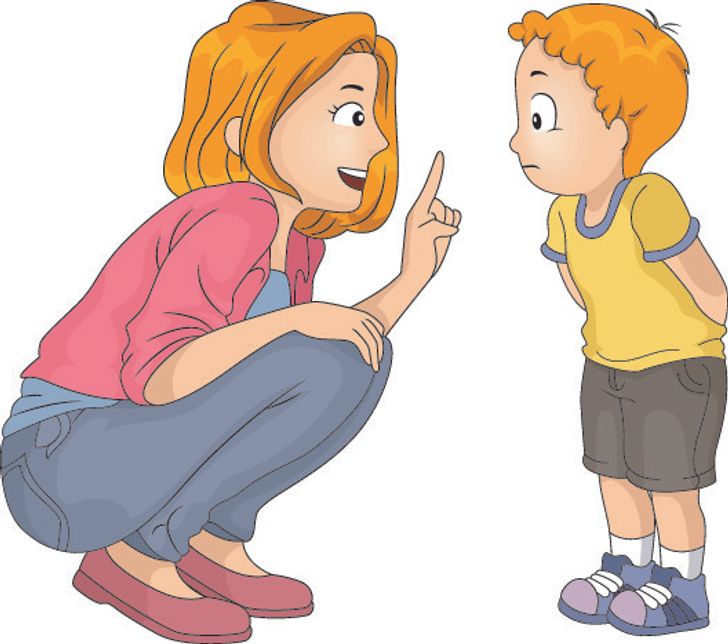This is really good advice, thanks!
9 Steps You Can Take to Talk to Your Children Like Mr. Rogers Did
English, Swedish, German. No, Freddish. You heard it right. Freddish is a language, or rather the so-called set of rules on how to talk with children, developed by Fred Rogers. He created his TV show dedicated to preschool children and important aspects of their life and upbringing. He knew that children literally hear everything and, therefore, the way we talk to them is important.
We at Bright Side are impressed by how simple and at the same time effectively you can talk with a child using the methods from Mr. Rogers. There are only 9 steps and they can change your life and the life of your kid. And we are ready to show you how it works on cases that are familiar to many parents.
All children are different. But they all need their parents’ advice and sometimes you have to explain rules about toys, strangers, and places where they can play to them. We suggest you check out 3 examples of how to use the rules of Mr. Rogers. They illustrate changing a negative idea into a positive statement that can be said to any child and even influence their understanding of growing up.
Step #1
Say your idea using simple words that your child can understand and be sure to be clear.
Examples:
- It’s dangerous to go with a stranger.
- It’s bad to throw the toys everywhere.
- It’s dangerous to play in the street.
- It’s bad to play computer games without permission.
Step #2
Now try to say the same thing but in a positive way.
Examples:
- It’s good to only go with people who you know.
- It’s good to put the toys back in their place.
- It’s good to play where it’s safe.
- It’s good to play computer games when it’s allowed.
Step #3
Children can’t always make distinctions. Therefore, rephrase your thought to convey to the child that it’s better to ask someone they trust.
Examples:
- Ask your parents who you can go with.
- Ask your parents where to put the toys.
- Ask your parents where it’s safe to play.
- Ask your parents when you can play computer games.
Step #4
Now it’s necessary to exclude everything that sounds instructive or prescriptive. Basically, eliminate the word “ask” in the latest statements.
Examples:
- Your parents will tell you who you can go with.
- Your parents will tell you where to put the toys.
- Your parents will tell you where it’s safe to play.
- Your parents will tell you when you can play computer games.
Step #5
The word “will” implies certainty and you need to remove it.
Examples:
- Your parents can tell you who you can go with.
- Your parents can tell you where to put the toys.
- Your parents can tell you where it’s safe to play.
- Your parents can tell you when you can play computer games.
Step #6
Rephrase your thought to exclude elements that don’t apply to all children. This should be the word “parents” since not all kids have and know their mom and dad.
Examples:
- Your favorite adults can tell you who you can go with.
- Your favorite adults can tell you where to put the toys.
- Your favorite adults can tell you where it’s safe to play.
- Your favorite adults can tell you when you can play computer games.
Step #7
Now you need to add motivation so that the child has a reason to do what you’re advising them to do.
Examples:
- Your favorite adults can tell who you can go with. Listening to them is good.
- Your favorite adults can tell you where to put your toys. Listening to what they say is good.
- Your favorite adults can tell you where it’s safe to play. It’s good to listen to them.
- Your favorite adults can tell you when you can play computer games. Listening to them is good.
Step #8
Rephrase your idea, adding motivation again. But this time, change the word “good” to something that doesn’t carry a value judgment.
Examples:
- Your favorite adults can tell you who you can go with. Listening to them is important.
- Your favorite adults can tell you where to put the toys. Listening to what they say is important.
- Your favorite adults can tell you where it’s safe to play. It’s important to try to listen to them.
- Your favorite adults can tell you when you can play computer games. Listening to them is important.
Step #9
Finally, you need to associate it with some stage of development that your child understands.
Examples:
- Your favorite adults can tell you who you can go with. Listening to them is important, and listening is an important part of growing up.
- Your favorite adults can tell you where to put the toys. Listening to what they say is important, and listening is important for growing up.
- Your favorite adults can tell you where it’s safe to play. It’s important to try to listen to them, and listening is an important part of growing.
- Your favorite adults can tell you when you can play computer games. Listening to them is important, and listening is important for growing up.
Now you can compare the first version of giving advice with the last version. So many differences, right? Trying to form your ideas in this way can help your kid understand you better. And they will do it without negative thoughts, but with motivation and a focus on self-development.
How do you communicate with your kid and tell them your advice? Share your tips with us in the comments.
Comments
Related Reads
15 People Who Put an Unforgettable Story Into Their Supermarket Trolley

15+ Stories That Prove Moms’ Love Tank Never Runs Empty

My Fiancé Wants a Joint Account, but I Don’t Want to Lose Control Over My Money

My DIL Broke My House Rules—I Made Her Face the Consequences

A Man Tried to Intimidate a Woman on the Plane, but She Turned Out to Be a Hard Target

12 Stories of Strangers Whose Actions Left a Lasting Mark

13 Disturbing Realities That Show the Twisted Side of Life

12 True Stories That Get Creepier the More You Read

10+ Stories With Endings More Disturbing Than a Halloween Film

I Turned My Stepdaughter’s Room Into My Gym — It’s MY House Now

15 Parents Shared What Made Them Realize Their Kids Were Actually Small Adults

16 Tweets From People That Haven’t Quite Gotten Over Their Exes










